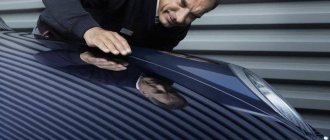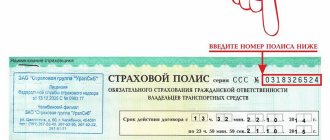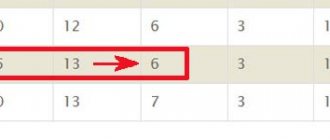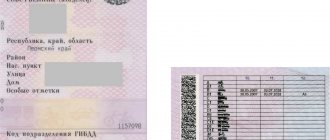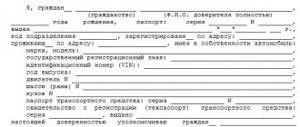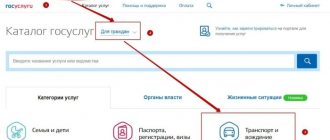Before you make a purchase of a used car, it is worth finding out its service history, how many owners it has had, and much more . It is very important to make sure that everything is fine with the machine and whether there are any restrictions on it.
If you do not carefully check all the information, serious problems may arise and after the conclusion of the purchase and sale agreement they will have to be resolved through the court. This is the only way to invalidate the transaction and get your money back.
Therefore, every driver who is going to purchase a used car should familiarize themselves with the information on how to get through the outbid by phone number.
Indeed, among those who post advertisements for the sale of cars, there are quite often car scammers and car resellers.
Checking the phone number of the vehicle seller
The best thing to do before buying a used car is to check the seller by phone number. You can simply take the phone number from the advertisement. This makes it possible to break into the car and identify the reseller.
This procedure is carried out using the Internet, using special services that allow you to check the phone number of the car seller.
This can be done on the special Avinfo website by following the link https://avinfo.guru. The site is a collection of databases of the most popular message boards - auto.ru, avito.ru, drom.ru.
This portal contains information about the car; you can check its history using the owner’s phone number. The database contains information about the majority of owners since 2012.
Thus, you can check the reseller by phone number. Information is provided in real time completely free of charge.
This service allows you to view which advertisements a specific seller has submitted. This is how they calculate whether a person is a reseller.
In addition, it is easy to track changes in the price of the vehicle. To start checking, you need to enter the seller’s phone number, or the car’s license plate number in the appropriate window.
It is really important to know how to identify a car reseller by phone number. On the Avinfo website you can also find out whether the car is wanted, whether it has any restrictions or not, and find out whether it was arrested by bailiffs.
But to obtain such information you need to know the state number, which is not a big obstacle. Sellers rarely hide numbers in photos.
Is it possible to check by phone number?
There are a huge number of specialized pages on the Internet that offer to check a reseller by his phone number. The algorithm for such verification is as follows: after checking the phone number by the system, the caller is redirected to all mentions of this phone number on the network. In this case, you can stumble upon many stories of buyers who have already suffered from outbid.
Since resellers do not always admit that they are engaged in such activities, this fact can be verified in another way. To do this, enter the seller's phone number into the search bar of your browser. If a large number of ads appear in search results on different platforms, including closed ones, this indicates that you will have to deal with a reseller.
Take a closer look at the photos
It can be quite easy to distinguish a car dealership that pretends to be a private owner from a real private owner using photographs. Car dealerships often photograph cars against a white wall, against the wall of a car service center or their own car dealership. Sometimes there are even photographs against the backdrop of a brand wall.
The dealership will also give you a tag on the keys, tires treated with ink, removed license plates, a crystal clean interior, protective paper on the mats, and a washed engine compartment.
And car dealerships rarely post more than seven photos. Moreover, the posted photographs were taken, as a rule, from traditional angles: front, rear, several photos with a three-quarter view, photos of the interior. There will never be detailed photographs of problem areas or any features. This is easily explained by the fact that car dealership managers simply do not have time to understand the details, and they put photography on stream.
It is more difficult to distinguish private resellers who have only one or two cars in circulation. Sometimes it is impossible to do this without calling. Nevertheless, I discovered the following pattern for myself: if a car is photographed against the backdrop of a gas station, then with an 80% probability it is a reseller. I don't know why, just experience. And one more thing: resellers cover up car numbers. And although private owners often do this too, resellers’ numbers are always painted over more accurately.
As an example, I took several screenshots of advertisements, from which it is immediately clear that they are from resellers. I would like to draw your attention to the fact that conclusions about whether an advertisement is from a reseller or not should be made only on the basis of several signs. If nothing in the ad confused you or confused you, but you have doubts, then it’s time to call.
There are four signs that the ad is from a reseller:
- Instead of a name, it’s unclear what.
- Instead of the inspection address, just the city is indicated.
- The numbers in the photo are covered with a neat white plaque.
- The description contains no specifics at all; it only states what can be said about the car at first glance and from the documents.
There are two obvious signs that the car is being sold by a reseller:
- In the “Seller” field it says “for Solaris”. This immediately makes it clear that the reseller has several cars in stock at the same time.
- In the seller's comments again there is no specifics, no punctuation marks, almost everything is in small letters. Private owners usually try to carefully arrange advertisements.
A real life story about resellers
In 2021, in the Moscow region, citizen S. decided to buy a car. The choice fell on the 1999 OpelAstra sedan, costing $2,800. Before purchasing, citizen S. turned to a certified service station with a request to check the technical condition of the car. The car repair staff did not identify any problems and recommended the vehicle. Despite this, citizen S. also checked the history of the seller and determined that he was a reseller, since he was selling several cars at the same time.
After tracking the history of citizen S.’s car, she was convinced that she was right, since the same 1999 Opel Astra was sold only 10 days ago. Price – $2,000 (whereas the reseller offered to buy the car for $2,800). It turned out that the car had serious problems with the engine, which is why citizen S. refused to buy it.
How to check a car for theft, road accident lien and encumbrance - why is it important to do this before purchasing?
How to break through a reseller from a mobile phone
In 2021, you can check a car seller by his mobile phone number or by the state registration number of the vehicle using the Avinfobot service.
This is a generator site that collects in one place all advertisements from a large number of sites for the sale of used cars. It is located on the messenger https://telegram.org.
You need to download it to your phone and enter Avinfobot in the “Search for contacts” line.
Then you need to send a message with the seller’s phone number or car registration number. You can simply send a photo from the ad if the numbers are visible on it. You will immediately receive a response message in the form of a report, which indicates on which sites how many advertisements this seller has.
For example, if the seller says that he is selling his sister’s car, who, due to certain circumstances, cannot come to the transaction, and the check reveals 5-6 car sales over the course of several months, then we can confidently say that this is a repurchase.
Checking via mobile phone
You can also identify a car reseller through a special mobile application. It's called Telegram. Essentially this is a messenger, like the well-known WhatsApp. After downloading and installing, you need to select an Avinfobot recipient in your contacts and send a message to them with a license plate number and phone number.
Instead of a license plate, you can even use a photograph of the car, the main thing is that the numbers on it are clearly legible. The response message will contain information in the form of a report. It will contain the car's VIN number and registration certificate data. It will also contain information about the seller’s advertisements, how many and what sites.
Why is it better to check your car through Autocode?
With Autocode, you can check your car by license plate online quickly and efficiently. The check allows you to track the car through the database literally from the assembly line to the point of sale. Not only individuals, but also specialized salons request the necessary information from Autocode.
Why choose the Autocode website:
- Reliability and quality of reports verified against the traffic police database
- Possibility to check a car by registration number
- Check result in 5 minutes!
- Applications for Iphone and Android for checking online
- Checking Japanese cars without a VIN code is a unique service opportunity!
After checking the car according to the state. number you will know exactly what the car is. Using these facts, you can fairly reduce the purchase price.
Autocode is a website for checking a car by license plate number, which allows you to find out real data about the car right at the time of purchase and protect yourself from an unwanted transaction.
Tricks of car resellers you need to know
Unscrupulous sellers are resellers; this is not uncommon now. To avoid falling for their tricks, you need to know the following:
- Resellers may call themselves the owners of the vehicle , whereas the passport indicates a completely different owner. After all, when choosing a suitable model for yourself, a person may not pay attention to all the details. Therefore, you should carefully look at the technical passport of the car before completing the transaction.
- Incorrect year of manufacture . This is the most harmless method of resellers. They often list a later year of manufacture of the vehicle in order to increase its value. If the buyer identifies a discrepancy, the seller simply refers to the typo without admitting to dishonest intentions. Such data must be checked before completing the transaction, since the year of manufacture significantly affects the cost.
- Incorrect information about the condition of the car . In the ad you can often find a description of the car, which indicates that it is not damaged, has not been in an accident and has not been repainted. The condition is like new, but the price has been reduced. In reality, it is profitable for a reseller to buy a cheap car and sell it at the market price. To do this, they look for owners who need to urgently sell their car and agree to give it to resellers at a low price. But in most cases, resellers buy cars in very poor condition, sometimes in such a state that they are no longer suitable for use. They are quickly repaired, repainted, some parts are changed and sold as practically new. Therefore, it is worth checking the vehicle with devices that have a certificate from the state metrological service.
- Twisted run . Many unscrupulous sellers resort to such a trick as twisting the mileage. When buying a vehicle, you should always take this point into account and listen less to the stories of the seller, whose task is to get rid of it as quickly as possible.
- Drowned cars are popular among resellers and pose a great danger to an honest buyer. Since even timely restoration work does not guarantee the long-term performance of such cars. Most often, such cars belong to the middle segment. For luxury brands, it is very difficult to hide traces of temporary exposure to water.
- Cars of taxi drivers or couriers . These are the kind of cars resellers love to buy, but it’s unlikely that anyone would want to buy such a vehicle. Serious companies constantly renew their fleet and sell used cars cheaply. Resellers buy them at auctions and then sell them for much more.
- Credit cars . There are also situations when resellers post advertisements for the sale of cars that are listed as stolen and simply have broken numbers. Cars with fake documents can also be sold. Such a vehicle is a real horror for the driver. It is impossible to legally sell it, so the owners turn to resellers. You should be wary of buying cars that are pledged. In fact, it cannot be sold, but until credit companies have entered information about the pledge on the car into the database, traffic police officers cannot check whether the car is pledged or not. This can only be determined by asking a notary for help.
- Tire cutting . Resellers may also resort to such tricks as widening the channels and tread grooves. This removes part of the additional layer of rubber. New or retreaded tires can be cut. It is important that there is the necessary “U” or “Regroovable” designation on the side, indicating the possibility of such an operation. And resellers often resort to this without thinking about the dangerous consequences.
- Engine operation . If there are defects in the engine, resellers add a special fluid to the engine to eliminate or reduce extraneous sounds. The effect of this procedure lasts for several days.
- Cosmetic repairs to hide minor defects in the interior or exterior of the car.
Survival instructions. How to calculate "outbid"?
Have you decided to sell your car? Or, on the contrary, are you buying? In any case, it will not hurt to know how to distinguish a reseller from an ordinary car enthusiast and thereby protect yourself from possible problems. This is not difficult to do, because a car is not a smartphone or a computer: all actions regarding the change of its owner must be documented. A careful study of the documents on the car will help shed light on the person standing in front of you. However, there are other ways to calculate “outbid”.
Are you selling a car?
For a seller, dealing with a reseller is not such a bad option, especially if his car is far from ideal. An ordinary buyer is most likely not interested in a shabby car with a shabby body, a dead suspension and worn out tires. But for a reseller who makes money on the difference between what was/was – that’s it! So, if your car is in average or poor condition, requires repairs or body work, do not scare off the “resellers” with spells like “resellers pass by,” but, on the contrary, attract their attention. How? First of all, a reasonable price. By putting a price tag on your car that is slightly lower than the market price, you will get rid of it quickly and without complications.
"Young man! We Russians don’t deceive each other!”
“I give you 200 and I’ll take it today . All resellers as one are trying to reduce the price over the phone. They heard on the phone: “I’ll pick it up for 200 thousand (arbitrary amount) without questions today” - 90%, which is a “outbidder” on the line, trying to “unsettle you” with the supposedly guaranteed purchase of a car. But it is not a fact that he is really ready to pay the amount announced over the phone. Most likely, when we meet, he will try to further reduce the price.
"Grandma" - right away . As a rule, “outbidders” carry money with them. This allows them not only to make purchases without delay, but also to put additional pressure on the seller. For example, you valued your car at 320 thousand, taking into account bargaining. We were counting on 300, but when inspecting the car they offer you 280 “pieces” - here and now. Demonstration of “live” bills, but in smaller quantities, is the most common method of “outbidding”. Whether to agree or not depends on the situation.
Does not fit into PTS . The above methods are rather indirect. Using the same principles, each of us can buy cars. It’s another matter when the buyer begins to “muddy the waters.” Most often, the “outbidder” tries to stay outside the scope of the deal. There is no reason for him to “shine” in the documents, because by entering into the PTS, he not only wastes precious space in the document, but also directly indicates his mediation. For the “outbidder” (but not for the seller), the ideal option is when you put signatures on the PTS and on blank forms of the purchase and sale agreement (handwritten form), which he will then fill out, entering the data of the final buyer. However, he can do without this by simply forging your autograph. In general, if the buyer tries in every possible way not to smear the PTS with his name, then you have a 100% “outbid”.
To avoid this, various tricks are used, such as fairy tales about lack of time, bad weather, forgot your glasses at home, etc. The “outbidder” can even fill out copies of the purchase and sale agreement. However, if there was no entry in the PTS, he will leave these pieces of paper with him, and when he finds someone to resell the car to, he will fill out new ones, but in your name and forging your signature.
It also happens that the reseller honestly admits to the seller his activities and asks not to fill out the documents. Like, in a week I’ll tinker with the car and resell it. Here is my phone number, passport, pension certificate, Eldorado discount card, and so on. It’s up to you to decide what to do, but we still advise you to register the sale as prescribed by law. Because a car is a vehicle of increased danger in every sense. No one knows what will happen to it in the future and who will be driving it. A “crooked” design can put you at risk, and then you will have to prove that you are not a camel. In general, re-register your car as expected - you will sleep better.
You are buying a car
For a buyer, a meeting with a “outbidder” is almost always a lottery without the right to win. At best, you'll just end up paying more for the car than you would have if you'd been smarter and more focused. At worst... anything. From buying a car with hidden defects to problems with registration in the MREO. If for the seller “outbid” or not “outbid” is a small difference, then it is advisable for the buyer to recognize the identity of the seller with the greatest possible accuracy.
“Tell me honestly, are you a “buy-in”?” It is difficult to recognize a “outbidder” over the phone. In an absentee conversation, he can say anything: I am the second owner, I have owned the car for more than three years, during this time I changed this and that, last summer we drove it south with the whole family... These are fairy tales that pour into your ears with one purpose - to lure you out to inspect the car, and then the card will fall. Therefore, if suspicions arise, the most effective thing you can do is to directly ask the seller: are you a “outbidder”? A direct fire strike often confuses the lying person. He begins to mumble, avoids a direct answer, and bombards you with another portion of lies. If you feel that the interlocutor is going into unconsciousness, load it again and finish him off with the same weapon: tell me straight - are you a reseller?!
Some people confess, others don’t, but any doubts are not in his favor. And direct questions about the seller in a preliminary dialogue over the phone will not be superfluous. Another thing is that by bringing out the “outbidders” over the phone, you run the risk of not buying a car at all. Whatever one may say, you will have to go for inspections.
How to identify a reseller using documents
There are several suspicious nuances that you may encounter in the PTS and other papers that the seller presents at the conclusion of the transaction. Using them, you can identify the schemer with the greatest degree of confidence.
1. The details of the owner and the seller do not match . No changes were made to the PTS. When buying a car, the reseller simply exchanged money for the car and its documents. Didn't fit into the PTS. It does not matter whether the purchase and sale agreements were completed. In any case, the transaction with you is made on behalf of a person whom you have never met. This means that the “outbidder” must sign for that person. Or has he already done it? This smacks of crime. The deal is illegal. The car will most likely be registered, but it’s a piece of cake for a good lawyer to undo such a mess.
2. The PTS contains the signature of the previous owner, but the specific person selling the car to you is not included there . Purchase and sale agreements are blank forms with the autographs of the previous owner. Essentially the same point one, but without the crime. The reseller sells the car on behalf of the owner, without entering himself into the title as an intermediate owner. The signatures are most likely genuine, although the transaction itself can be considered legal only conditionally. However, there will be no problems with registering the car.
3. Sale by proxy . A once popular method of selling, it is rare nowadays. However, the law provides for such a procedure. In this case, the seller acts on behalf of the owner of the car on the basis of a power of attorney (certified by a notary) and has the right to perform the actions listed in the document. A completely legal way to resell a car.
4. Recent entry in the PTS about a change of owner . There is a purchase and sale agreement with the previous owner. The dealer bought the car in compliance with all requirements. The transaction is 100% legal. In this case, you draw up another purchase and sale agreement with the reseller and go to the MREO with two agreements: the first - between the previous owner and the reseller, the second - between the reseller and you. Registration is proceeding as normal.
5. Sales based on a reference invoice. Once it became possible to draw up handwritten sales contracts and go to a consignment store to get a certificate-invoice certified by a seal, the need disappeared. Such a document is often insisted on by people with old habits or those who are simply not aware of the new rules. And also those who want to play it safe. The presence of a certificate of invoice does not mean that the owner is selling the car to you. This could also be a “outbidder” who arranged the sale through the store. In any case, look at the date the contract was drawn up. If the deal was concluded recently, then most likely you are being outbid. Further registration of the car occurs as in point “4”.
“Listen, you watched it when you bought it. Well, I helped you with all my might, as best I could.”
Pay attention to the little things . The reseller can be identified by the appearance of the car, even at the stage of studying the ad. Cheap, non-original wheel covers are one of the signs of “outbid”. Caps make the car look more elegant, but the “original” ones are expensive, and the “non-original” ones are sold on every corner “for a ruble apiece.” They are placed on cars for resale. A front panel polished to a shine is another indirect sign. As well as several “stinkers” in the cabin that mask odors. Take a sniff. If it smells like chemicals, the interior has been treated. Many “outbidders” take photographs of freshly washed cars: straight from the car wash to the photo shoot. Therefore, wet spots on the asphalt under the car are another clue that “outbid” is involved.
During an in-person inspection, take a closer look at the car, walk over the outer panels and interior with your hand. Does the body shine and your hand glide easily? This means that the parts have one or more layers of wax on them. Only a lazy “outsider” doesn’t polish the car before selling it. After all, the picture is important to him so that the appearance of the car is as attractive as possible. Tires and other plastics rubbed to a greasy shine also indicate that the car has undergone pre-sale preparation.
Of course, an ordinary car enthusiast can do this too... maybe, but for some reason he doesn’t do it or does it extremely rarely. Very often, when selling their personal car, a person does not even bother to remove personal belongings from the interior before taking photographs. By the way, here’s another tick for you - there are no unnecessary items or devices in the car from the “outbid”. But there is the shine of polish and cheap trinkets. Someone who knows perfectly well how and how to hide the shortcomings of a car in order to attract, or rather, distract your attention. Be carefull. Good luck!
Useful service from Droma: drawing up a purchase and sale agreement (SPA) for a car online.
Why check the reseller?
Many car enthusiasts are afraid to deal with resellers, and such fear is not unfounded. Almost everyone can recall a large number of stories from friends about how such transactions did not end well. So why is this activity still thriving and people still taking risks by interacting with resellers? The answer is simple: selling a car in a crowded market can be quite difficult, especially if you need to do it as quickly as possible, so many people willingly sell their cars to resellers.
This leads to a consequence: if a car enthusiast does not have the opportunity to buy a car off the assembly line, he will look for offers from other people and will most likely run into a reseller. Here it should also be taken into account that resellers have extensive experience working with cars, often present really interesting offers, and also know how to gain the trust and convince the buyer.
Useful information for car buyers
When buying a used car, you can check whether the seller is a reseller by clicking on the link - www.akham.ru/phone.
Information about cars that are wanted, as well as identifying possible prohibitions and restrictions provided for by the legislation of the Russian Federation, can be found on the official website of the State Traffic Safety Inspectorate - https://www.gibdd.ru/check/auto/.
Using the Internet you can find a lot of useful information for car buyers:
- Vehicle check for arrests, restrictions on certain actions - https://www.gibdd.ru/check/auto/.
- The owner has unpaid loans; opening enforcement proceedings against him - https://fssprus.ru/iss/ip_search/.
- Check if the car is pledged - https://www.reestr-zalogov.ru/state/index#/.
Among the sellers of cars that have already been in use, there are now quite a few resellers. They buy cheap cars and try to sell them for as much as possible.
But the condition of such a car may not be the same as indicated in the ad. Therefore, before purchasing a used vehicle, for safety and reliability, you need to check the reseller by his phone number.
This is easy to do if you have access to the Internet. There are special sites that will quickly process the relevant information and produce results.
TANK-SPB-RU › Blog › For those buying cars
Check the seller by phone number to see if he is a reseller www.akham.ru/phone
Information about vehicles that are on the wanted list, as well as in respect of which registration actions cannot be carried out due to the introduction by the courts, investigative, customs authorities, and social protection authorities or other authorities in cases and in the manner provided for by the legislation of the Russian Federation, prohibitions or restrictions on changing ownership www.gibdd.ru/check/auto/
1) www.gibdd.ru/check/auto/ - A basic check for a car, for arrests, registration restrictions, etc. 2) fssprus.ru/iss/ip_search/ - Perhaps the owner did not pay the loan and enforcement proceedings have already been opened against him. 3) www.reestr-zalogov.ru/#/ — The car can be pledged 4) vin.auto.ru/ — They also check for restrictions, plus they check with partner banks 5) avtocod.ru/ — info from ML, road accidents for cars from large cities and much more, example below
6) Relevant only for residents of Moscow and St. Petersburg, perhaps some other large cities - avtokod.mos.ru The idea is very sound, you can see all the owners, the history of the car, etc. Just in case: 7) Check in any database for stolen cars - Elementary, there are a lot of sites with databases in the search engine, you can search in several by the license plate number of the car.
================= Here is an example of checking my tour with AUTOCODE
General information
Volkswagen Touareg car Sometimes there is a number, sometimes there is not VIN WVGZZZ7PZBD00**** Year 2010 Real mileage, entered OD km. Number of owners 1 Equipment Manufacturer Volkswagen AG Vehicle mileage Recorded date 06/23/2015 (apparently based on the date of application to the OD) The value is real, the entered OD km. Checking the VIN check character The VIN check character could not be verified. Data on participation in an accident The car was not involved in an accident History of registration actions History not found Using the car as a taxi The car was not used in a taxi Information about the search for the vehicle in the federal information system of the Ministry of Internal Affairs of Russia The car is not wanted Information about the imposition of restrictions in the federal information system Ministry of Internal Affairs of Russia No restrictions Information about being pledged to banks The car is not pledged Checking CARFAX history Information not found Checking history at auctions Information not found Customs data Information not found
so 348r is essentially worth nothing, unless you compare mileage control points if ODs were made
Source
What does checking by car number reveal?
A full report is generated within 5 minutes! From it you will learn:
- Brief description of the car
- PTS data
- History of registration actions
- Real mileage
- Data on participation in road accidents
- Real car vin
- Traffic police restrictions
- Information about the theft
- Being in collateral
- Work in a taxi
- Disposal data
- OSAGO
- Information about those inspection and fines
You can check your car using its license plate number without leaving your home. In addition to the online information, you will receive an exact copy of the detailed report by email.
How does the Anti-Purchase system work?
When purchasing, you can check the car history using a special service on the website anti-perekup.rf. This is the most reliable way to obtain information about the purchased vehicle.
In a special window you need to enter the VIN or license plate number and click the “check” . The Anti-Purchase Online program is easy to use.
Also find out about 5 ways to contact Yota technical support
What is Anti-collector is written here
Alternative ways to check a reseller
The main fact that proves the fact that this is a reseller is the discrepancy between his passport data and the data of the car owner in the title. Resellers never re-register cars in their name, because this wastes time and money.
Whether a seller on ad sites is a reseller can also be determined in the following ways:
- Resellers often write in the ad not their name, but the words “owner”, “owner”, and also do not mark the address of the transaction on the map (private traders usually indicate their, at least, approximate address).
- An impersonal description of the car: just a list of characteristics, the phrase “all questions by phone,” etc.
- Dealers often take pictures of cars in public places, such as gas stations or car washes.
- The license plates of the car are too neatly covered up, etc.
In addition to checking the identity of the dealer himself, you should check the car itself:
- for damage and actual mileage by conducting an examination at a service station;
- for fines and theft on the traffic police website;
- availability of the pledge in the register of the notary chamber or on specialized resources;
- on restrictions on the bailiffs portal.
Despite the fact that resellers often offer interesting lots, and are also almost the majority of sellers on classifieds sites, transactions with them should be made with the utmost caution. It is worth checking not only the identity and history of the reseller, but also the car itself especially carefully.
02/15/2021ovrautozona
Last messages
- How to communicate with a traffic police inspector05/26/2021
- The traffic police simplifies the installation of a new engine and allows cars with electronic registration certificates to be registered. 05/26/2021
- How to challenge a letter of happiness from the traffic police May 26, 2021

